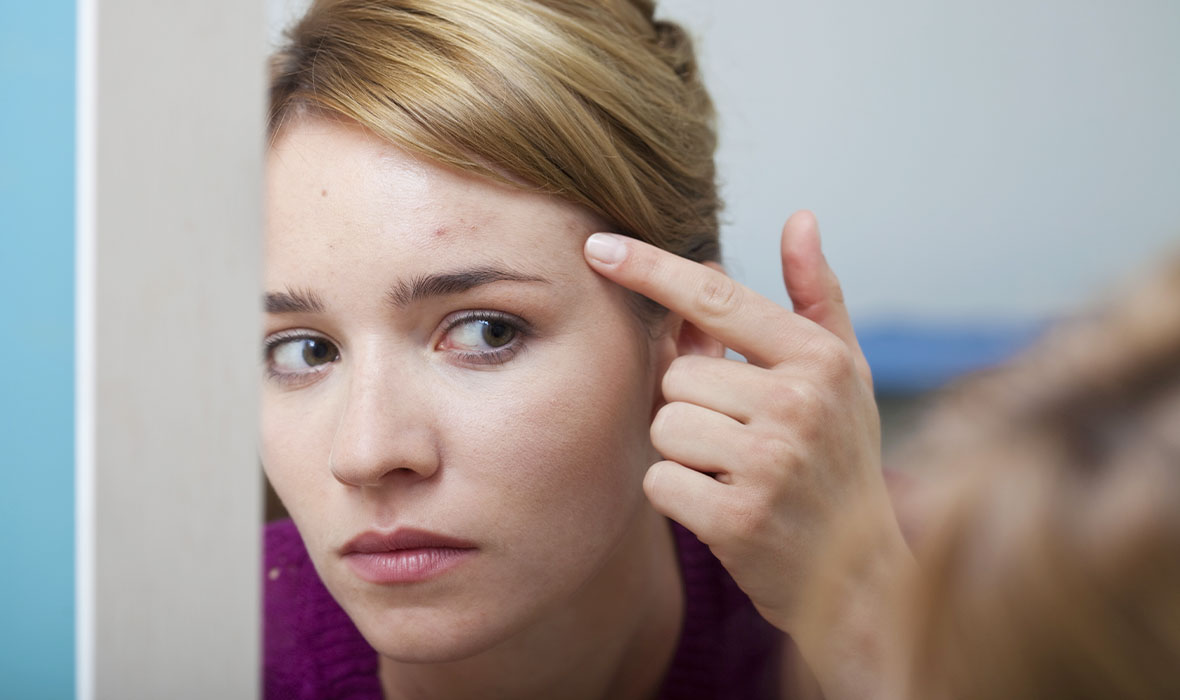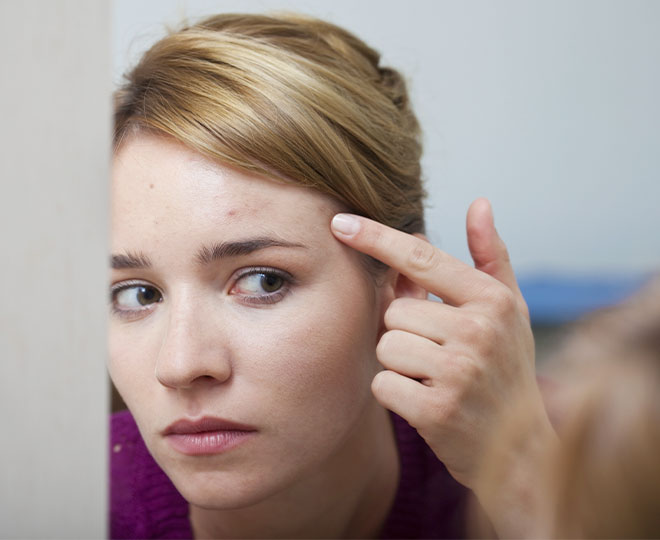While it’s easy to assume that pimples and breakouts stop once you’ve reached adulthood, truthfully, acne can truly occur at any age. After all, excessive oil production, clogged pores, bacteria, and inflammation can occur well into adulthood, which, of course, sets up the right environment for adult acne to form.
However, while acne can occur at any stage of life, cases of acne in your 20s, acne in your 30s, and acne in your 40s can differ, so to help you treat each case accordingly, ahead, we’re exploring what acne looks like at every age. We’re also sharing tips on how to develop a skincare routine for clearer, healthier-looking skin.
Treating adult acne in your 20s
Acne can definitely occur in your 20s, and if you are genetically predisposed, have increased oil production from sebaceous glands, and have fluctuating hormone levels, your chances for developing breakouts only increases.
Treating acne in your 20s is achievable if you take the right precautions. Washing your face twice a day with a mild and gentle cleanser, using sunscreen, using products containing anti-acne ingredients such as benzoyl peroxide and salicylic acid, and avoiding popping and squeezing your pimples are all good places to start.
That said, if your breakouts won’t clear, it’s always best to seek out the advice of a dermatologist. These trained individuals can administer topical treatments, help you tweak your daily habits, and prescribe medications, among other things.
Treating acne in your 30s
Adult acne can occur in your 30s, especially if you are genetically predisposed, have increased oil production from sebaceous glands, and have higher hormone levels (that can be influenced by birth control and pregnancy in some instances.)
To help treat acne in 30s, you’ll want to be mindful of your daily skin care habits ‒ use of mild and gentle cleanser, use of sunscreen, and avoiding popping and squeezing your pimples can also be helpful at this age.
If your acne won’t clear, a visit to your dermatologist’s office is your next best step. A dermatologist can prescribe you with stronger treatments, like a topical retinoid, or oral antibiotics.
Treating acne in your 40s
Adult acne can occur in this age group, and can be influenced by several factors including pregnancy, stress, hormones, use of medications, certain underlying health conditions, and onset of menopause.
Treating acne in your 40s can be different from that in your 20s and 30s. Use of topical retinoids as well as a cleansing twice a day can be beneficial.
What are the most effective treatment options
Because no two cases of acne are the same, keep in mind that all treatment options for acne will vary depending on the individual, no matter what stage of life they may be in.
To help you develop a sound treatment plan for your adult acne, it’s always best to consult with a dermatologist.
Conclusion
Adult acne can happen at any age and at any time. However, because no two cases are the same, cases acne in your 20s, acne in your 30s, and acne in your 40s should possibly be treated differently.
That being said, it's best to consult with a doctor to develop a sound acne treatment plan that is best suited to your individual needs and your age group.






